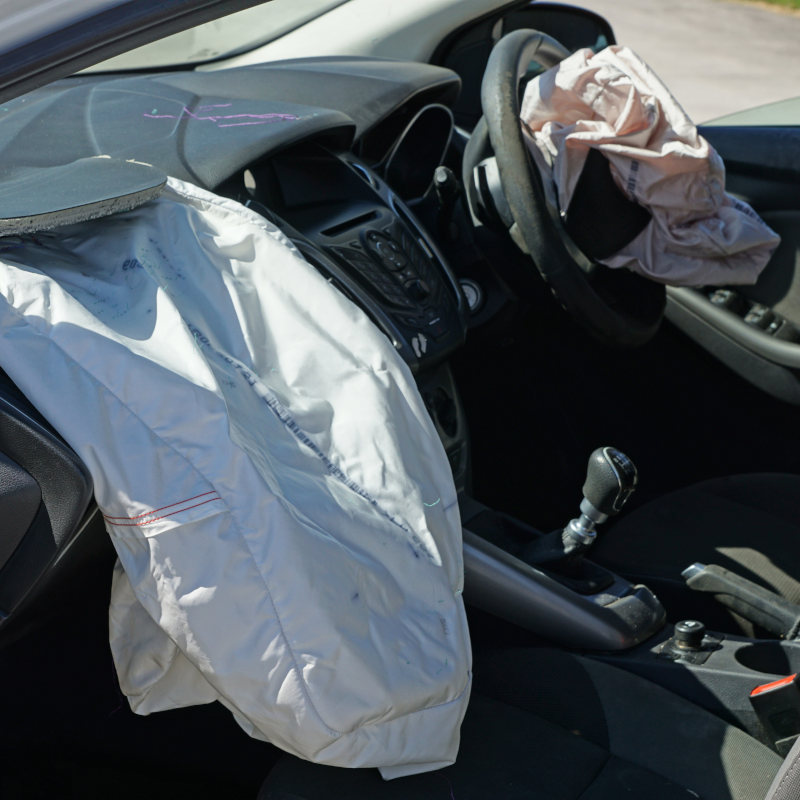Product recalls are on the rise in many industries where product safety is of crucial importance. In some sectors, such as pharmaceutical and medical devices, product failures sometimes have severe consequences for consumers’ health. As supply chains are becoming more globalised and products subject to rapid technological change, the factors contributing to product safety risks intensify.
RADMA scholar Dr. Roman Schumacher investigated the impact of structural characteristics of contemporary supply chains on product safety in his PhD thesis ‘Unveiling the Impact of Supply Chain Complexity on Product Safety Risk’.
Roman is currently working at Johnson & Johnson Innovative Medicine, where he implements several lean projects focused on operational excellence. He says: “This activity allows me to put some of my research’s findings into practice on a daily basis, which I really enjoy.”

New insights into the relationships between supply chain complexity, operational efficiency, and product safety
Roman investigated
- how supply chain complexity manifests in today’s industrial supply chains
- the impact this has on product safety and performance
- how practitioners can effectively reduce product safety risks arising from elevated supply chain complexity.
He used a mixed method research approach that included case study research with major pharmaceutical, medical device, and automotive companies, supported by empirical research using firm supply chain and recall data.
Globalisation and safety
Roman says: “Contemporary supply chains are highly globalised due to competitive pressures to reduce costs and innovate.
“Suppliers play an increasingly important role in R&D and manufacturing, while Original Equipment Manufacturers (OEMs) become integrators, using parts and products from a variety of different sources, often spread all over the globe.
“While this practice is key to reduced time-to-market and shortened product lifecycles, the consequences on product safety can be severe.
“In fact, there is a broad base of anecdotal evidence suggesting that product failures stemming from suppliers were the root cause for high profile product recalls.”
He gives the example of the Takata airbag recall, where over 40 million cars had to be recalled globally as a consequence of malfunctioning airbags from the supplier Takata.
Long-term exposure to high heat and humidity could cause these air bags to explode when deployed. Such explosions have caused injuries and at least 16 fatalities, and the bankruptcy of the supplier.
“The list of incidents caused by suppliers’ product failures is long and it raises the question to what extent suppliers are involved in increased product recall rates in recent years,” he continues.
“Concerningly, my research found that there is a lack of empirical evidence that investigates the relationships between globalised, and technologically complex supply chains and product safety.”

Key findings of the study include:
- Supply chain complexity has a significant, positive impact on product safety risk
- Supply chain complexity is becoming increasingly difficult to handle for large scale organisations
- Technological aspects are important drivers of supply chain complexity
- Operational efficiency is negatively associated with product safety risk
Safety risks and product recalls set to increase
According to a study from EY, 77% of supply chain leaders plan to diversify their supply chain further to reduce the risks of major disruptions. Roman says that this will have unexpected consequences as his research shows that the number of product recalls will increase with a more complex supplier base.
“To avoid additional safety risks, manufacturers should look to consolidate their supply chains where additional complexity does not contribute significant value-added,” he advises. “Additionally, managers should foster close relationships with their suppliers to keep oversight of activities.
“The implementation of lean management principles and measures to improve supply chain operations can help to mitigate product safety risks emanating from globalised supply chains. The study shows that firms which operate their supply chain more efficiently, outperform their competitors in terms of product safety.”
RADMA fills an important gap
Roman is grateful for the support given by RADMA. “Research that examines the effect of innovation on various operational outcomes will become more important as technologies grow in complexity. RADMA fills a very important gap by providing a platform to publish research that addresses exactly these relationships.
“RADMA provided me with a scholarship to cover my living expenses during my PhD. Through this support, I was able to conduct research, publish several papers and besides this, to serve as President of the Cambridge University German Society, Cambridge’s most active student organisation with over 4,000 active members and alumni.
“Together with the committee, I hosted several speaker series with speakers from research, practice, and politics, including multiple German Federal Ministers, investors, and industry leaders.
“Funding from institutions such as RADMA help students to engage in these types of activities which are very important for fostering friendships and exchange among students, for their personal and professional development, and for the university ecosystems as a whole.
“For this support I am incredibly thankful.”

